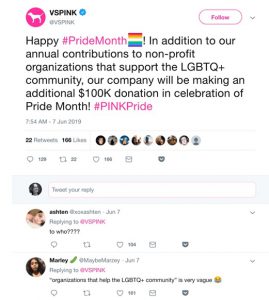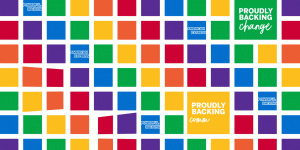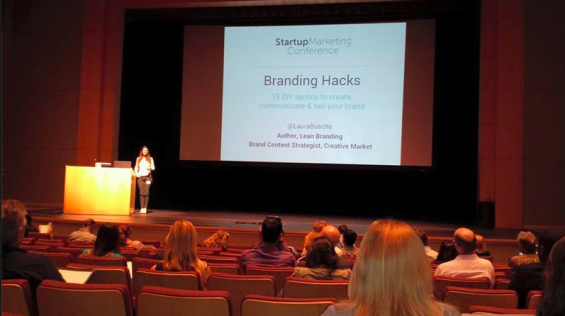SEO
June 26, 2019
From scrolling down your twitter feed to a stroll through the mall, it’s easy to see that this year’s Pride is in full swing. The month-long LGBT+ celebration is a beautiful conglomeration of activism, history, parties, and even marketing? Brands promoting gay pride publicly was unheard 50 years ago (Which is when the historic Stonewall Riots occurred, leading the way for the modern gay pride movement.) However, now in our more socially-minded society, consumers care a lot more how a large brand impacts the world and it’s culture. With an increase in brands riding the inclusivity wave, it calls into question, does featuring and celebrating LGBT+ Pride positively or negatively impact consumer demand?
Inclusivity Marketing is creating content that truly reflects the diverse communities that your company serves. We have seen this in various movements from the #bodypositivity movement to #aeriereal campaign. Which shows models of all shapes and sizes flourishing in underwear ads. Brands are realizing marketing to every kind of person may be the way to attract new customers. Creating campaigns that showcase real people not just photoshopped models. Which allows more marginalized groups a chance to really connect with that brand, creating brand loyalty. An even simpler reason, is targeting a wider range of people equates to plainly, more eyes on your products. This more inclusive marketing trend combined with the Pride celebration’s continued growth. Means the month of June is the perfect showcase for large-scale inclusivity marketing. A mix of companies using their platform for good and some wanting to make money off of marginalized groups leaves a mixed-bag of interesting campaigns that are worth analyzing.
2019 Pride Content Examples
- Adidas – Released a Pride collection entitled “Pride pack”. Though not tied to product sales, Adidas will be supporting The Trevor Project, the world’s largest suicide prevention and crisis intervention organization for the youth of the community.
- Absolut Vodka – Using a myriad of LGBT+ influencers, Absolut Vodka is kicking off a campaign with multiple channels, including commercials, branded events during Pride weekend, and in addition to bringing back its iconic rainbow bottle, Absolut has launched a multi-year partnership supporting GLAAD’s work accelerating acceptance for the LGBT community.
- Victoria Secret- Their brand Pink, tweeted their support for Pride month where they state that they will donate 100K to a LGBTQ+ Organization, the brand is still facing scrutiny over anti-trans comments made earlier this year.
- Gap – Launched its “Love all ways” campaign highlighting what family means today and will donate 15% of proceeds to the U.N. Free and Equal Foundation.
- American Express – Is celebrating Pride with a performance by Singer Lizzo. All proceeds will go to the Stonewall Community Foundation, an organization that bears part of its historic name to honor the 1969 uprising that started in New York and the spirit of freedom, resilience, and resolve that abides today. American Express is also displaying an array of Pride-themed ads over New York with messages of Pride and acceptance.
These are just some of the examples of what companies do during the month of June. What Makes them successful or scrutinized all depends on context.
How These Campaigns Were Received
Campaigns run by Absolut Vodka, Gap, and American Express have three things in common, that made their Pride campaigns successful. First, their brands support the LGBT+ Community throughout the year, not just in June. They do this with continued donations (American Express) and inclusive marketing (Gap and Absolut Vodka). Two, they specifically call out where they are donating their money, instead of just vaguely stating they are supporting the community. This makes the campaign seem more genuine. Lastly the pride/rainbow items they are selling are completely or in-part not for profit. The transparency demonstrated by these brands isn’t just a new fad.
Regan Clarke, Brand Director of Absolut Vodka, USA knows exactly where his brand belongs in all of this and is proud of it. Stating “Supporting the LGBTQ community back in 1981 was a risky decision for mainstream brands, when taking a stand for equality meant going against conventional culture.” Absolut’s 30+ year commitment to Pride is a great example of how inclusive marketing, can work and has worked. Demonstrating how powerful, socially aware marketing really can be when trying to further your brands position and satisfy younger consumers. These brands are creating an image for themselves as a positive presence in the world. Brand directors like Regan Clarke, show how putting time and effort into a pride campaign can really yield positive returns.
On the opposite spectrum is Victoria Secret. Earlier this year they had a major scandal involving their CMO Ed Razek. When he claimed transgender people don’t belong in the “coveted” Victoria Secret fashion show, because they don’t represent fantasy. “Dear Victoria’s Secret, you said trans women can’t sell the “fantasy” so here I am as a TRANS WOMAN selling the FANTASY! ماهي لعبة الروليت ” wrote trans makeup mogul, Nikita Dragun on her Twitter account in the weeks following the 2018 fashion show disaster. Fans were quick to bring Dragun’s tweet up again when Victoria’s Secret attempted to voice support for the LGBTQ+ community during pride month (The Tweet above). Showing how consumers are quick to call out inconsistency and injustice within a brand. The brand has not fully recovered from Ed Razek’s comments. كيف تلعب القمار This tweet sent out for Pride makes the company look even more out of touch. Only helping in bringing up past scandals and driving even more consumers away.
Adidas similarly has a bad reputation when it comes to supporting the LGBT+ community year round. The company is a huge sponsor for the Olympics, which took place in Russia in 2014. قواعد لعب البوكر Russia’s anti-gay policies are well documented and many LGBT+ Individuals from all over the world run the risk of these harsh policies by traveling to and participating in the games. Many consumers called them out, saying the company is not truly LGBT+ supportive when they are helping fund the Olympics in such a dangerous place for the community. Many calling their “Pride Pack” a cash grab because of LGBT+ consumers’ desire for rainbow everything during Pride. The “Pride Pack” seems disingenuous because the money made from, those shoes specifically, all goes into Adidas’ pocket.
The donations they are giving to the Trevor foundation are appreciated and valid, but many consumers seem to be unhappy with the broad claims of supporting the Trevor Project because isn’t being transparent about the actual amount or percentage of product sales that they are donating. Vox writer Alex Abad-Santos summarizes what Adidas is doing perfectly stating that “Brands promoting gay pride and the LGBTQ community may not always be consistent in actually supporting the LGBTQ community, but they still capitalize on the help that people want to give that community.” With their continued support of an event that isn’t LGBT+ friendly like the 2020 Olympics consumers are smart enough to realize that this brand doesn’t really have the LGBT+ communities best interest at heart year-round, only when it might seem convenient.
Is Marketing During Pride Worth The Risk?
A good Pride campaign can break boundaries, start meaningful conversations and position your brand favorably with a growing audience. On the flip-side, brands whose campaigns seem like lazy cash grabs will dig their company into a very big hole both on social media and with the general public mindset. Consumers are savvier than they have ever been and can tell when a brand is being genuine in their marketing. Companies like Gap and American Express clearly state where the money raised from their Pride campaigns is going and it is that transparency that draws in the modern consumer. In today’s age consumers vote with their dollars, many choose not to support brands that don’t align with their views. It’s up to brands to decide where they will fall politically and socially because it might affect their bottom line.
May 20, 2019
Technology doesn’t surprise us anymore. Instagram updates every day, new emojis are a dime a dozen, and Facebook shows us ads for that pizza we’ve all been craving. All this combined presents a new frontier for commerce. For the first time what we spend money on, how long we stay on a sight, and potentially even our future behavior is all data. ويليام هيل Everyone’s behavior is traceable and predictable. This is a huge benefit for business. In a perfect world, it gets consumers what they want before they even know they want it. العاب على الهاتف المحمول However, our world is not perfect and sometimes the succinctness of these ads gets a big brother vibe from consumers.
People are inherently private so they don’t like the idea that everything about them is online. It’s this odd love of convenience but fear of a loss of privacy. The biggest example of this paradox coming to a head is the Facebook Cambridge Analytic scandal. People felt a significant loss of privacy by the hands of Facebook. As a company, they are still feeling the effects of this breach in trust today. With the Facebook scandal, this reality of consumer data got pushed front and center. Facebook is funded through advertisements, so what solution could they come to that wouldn’t stop businesses from advertising and won’t make their users feel unsafe?
They create the “clear history” function
Creating the “option” for Facebook users to delete their history and become a ghost online. This is a solution for the private Facebook user. While being a problem for digital marketers and Zuckerberg knows this; he already warned advertisers this will change their strategies for Facebook ads. Even though this option may impact Facebook’s ad business. Zuckerberg clearly sees this tool as necessary to win back user trust. “After going through our systems, this is an example of the kind of control we think you should have,” he wrote in his announcement post on Clear History. “It’s something privacy advocates have been asking for — and we will work with them to make sure we get it right.”
The stance of Facebook is strong; is privacy going to kill specified ads on Facebook?
The clear history button if used will affect specifications of ads, but a big part of that is if it’s used. There is a reason Facebook is giving this as an option, not a mandate. Also, an upside is its release has been delayed. They have released statement after statement promising this feature will arrive even though it is a couple of months late already. With a release like this, it seems like it is purposefully going under the radar. Facebook knows they have one of the most effective platforms for specified ad targeting due to the information Facebook users tell about themselves. From their relationship status, to what pages they visit. The upside of the clear history function is that it gives users the confidence that they aren’t being watched, so for some, the ad they eventually see could sit better with them. Another big plus for businesses is that it is optional; so most people, who are not privacy advocates who stay up on Facebook news might not know about this new option.
So even though it seems like a death sentence for digital advertising that’s a far cry from the truth. لعبة بوكر تكساس If anything users who find a problem with personalized ads won’t have that problem anymore. Now ads will seem more genuine and trustworthy. So yes data is being erased. But Facebook knows this won’t really matter other than the initial dent in loss of data. Facebook will still be an extremely effective marketing tool for all users.
Links for sources:
December 19, 2017
Robots in Media
Robots have been a part of human culture for a long time now. In fact, the first time someone said “robot” was in 1921! Robots are still a huge part of our lives today in all media especially in movies like Star Wars: The Last Jedi and now we even find robots in our homes thanks to smart speakers such as Google Home and assistants like Siri. Today, let’s talk about some bots we can’t see directly, but that probably effect us more than any bots we actually recognize. Let’s discuss a certain kind of internet bot: the algorithm.
A.I. on the Web
Remember during The Social Network (2010) when Mark Zuckerburg got drunk and started writing math problems on his college dorm window? What he was doing in that scene was coming up with the foundation for the algebra he would later use in his algorithm for finding friends on Facebook. اربح An algorithm is “a process or set of rules to be followed in calculations or other problem-solving operations, especially by a computer.” We encounter algorithms everyday when surfing the web and we may not even realize it. On YouTube, a bot is in-charge of deciding which videos hit the Trending page or even how likely an ad will play on that video. Google’s algorithm decides which ads are displayed on it’s homepage per search. All of these are examples of Artificial Intelligence or A.I., for short.
How Bots are Made
A.I. is what makes the modern internet work and is how we as humans can communicate effortlessly all across the globe in milliseconds. So how do the bots actually even work? Well in the simplest terms it’s a bit of a mystery as each internet company builds their bots from scratch in an effort to do a task and none of the companies are going to give away their secrets anytime soon. What we do know is how a bot is built and what that means for how they operate online.
Bots are created instantly and infinitely, each with slight changes, and are tested to perform a simple task, like recognizing a certain word or an image. All A.I. in a set are given basic instructions in code and guidelines in the form of human knowledge, then they are tested on that information. Those bots that score the highest are copied and altered for the next round of testing and the failure bots are discarded. The process repeats itself until a single bot is chosen that can most accurately and almost perfectly do that task. All the companies who built the bots are left to do is trust the process until a better bot is created. This is the algorithm for making a bot that does what you need it to do.
Stay Tuned for More!
In a future blog we’ll discuss how these algorithms and A. روليت عربي I. robots can aid your business if you wanted to build your own and will take you step-by-step in that process. Stay tuned! In the meantime, check out this informative video by CGP Grey for more on bots and A.I.
Sources:
http://www.cnn.com/2013/12/19/tech/innovation/robots-pop-culture/index.html
http://www.imdb.com/title/tt1285016/
https://www.merriam-webster.com/dictionary/algorithm
April 15, 2015
What do you get when you mix industry thought leaders in growth hacking, SEO, marketing, lean startups, enterprise innovation and plenty of sunshine? SFIMA’s Startup Marketing Conference in Ft. Lauderdale!
The event took place April 9th, and featured speakers like Aaron Kahlow, CEO & Founder of Online Marketing Institute, Zach Onisko of Autodesk and Laura Busche from Smashing Magazine, among many others, bringing together leading industry minds to talk about some pretty exciting things in marketing. Our very own Marketing Director, John-Michael Del Valle (JM), was a member of the Growth Hacking Panel, discussing the future of marketing and lean startups.
We sat down with him to talk about key takeaways and thoughts from the event.
1. How can Growth Hacking change the way we market brands and products?
Growth hacking is combining marketing, development, and data science, and utilizing these diverse disciplines to enable fast-paced growth with small budgets in a smarter and more efficient way. The status quo has been that organizations see these core disciplines separately. Growth hacking aims to combine them into a laser-focused strategy. It’s less about shortcuts or actual “hacks”, and more about a way of thinking, a paradigm shift in how we do marketing.
2. Your takeaway on Content Marketing and SEO?
In our industry, it’s common knowledge that SEO is a staple marketing channel due to the heavy use of search engines like Google. But actually, the best way to see results from search engines is to instead focus on quality content to drive optimization organically. In other words, quality content is key over SEO – developing content that people are actually searching for and providing the information and answer to their query. This drives credibility and authority on Google – and goes beyond just search engines to all marketing channels, even e-mail, and social media.
3. Key marketing trends to watch for?
As marketers, one of the key things we should be thinking about is what data can do for us. In terms of hyper-targeted marketing content, data science is the proverbial tip of the iceberg. I think we’ll be seeing an influx in software and central database management platforms to help in developing predictive analysis and sales forecasting. It’s basically using algorithms and models, like those used in financial institutions, applied to the marketing space. لعب البوكر
4. Your favorite content hacks from the conference?
One thing that caught my interest was the AIDA method for writing effective copy, presented by Neville Medhora. ألعاب لربح المال AIDA stands for Attention, Interest, Desire and Action, simplifies the copy process, and can be used for e-mail, web copy and pretty much anywhere you want to drive engagement.
Another cool hack I learned is a technique to prevent Gmail from sending your e-mails to the Promotions folder. You simply include a P.S. asking for a reply or comment. Once the customer replies to your e-mail, this signals Google to whitelist your e-mail address.
5. Give us a glimpse of the future of marketing.
Even in an industry that’s constantly changing and pushing the envelope, I can’t help but still be in awe at the potential of the future when it comes to the marketing space. At the conference, discussions broke out about topics like iPhone wearable technology, augmented reality, and even websites as we know it becoming obsolete. Actually many things that would seem Sci-fi before are plainly just around the corner.
I think the main takeaway is how quickly technology can change the marketing landscape, and as marketers we must be able to adapt to these emerging platforms.
At Peak Seven, we are proud to have been a part of a local movement to share ideas and discuss what shapes or marketing and messaging, especially in the South Florida community, and we look forward to having the opportunity to participate again. Check out upcoming events on the SFIMA website.
August 20, 2014
It has been approximately nine years since Facebook consumed my life, and I’m not afraid to admit it. When Facebook first started to catch on, I was a sophomore in high school, and being the rebel that I was, I refused to get one initially. Keep in mind I initially also refused to try Chipotle because I “didn’t like Mexican food,” (but really I was lying to myself, I was just trying to be defiant). Neither of those delusions lasted very long, and soon I was a Chipotle and Facebook addicted teenager; a textbook Millennial.
When Facebook introduced “Pages” and made a push for them instead of user-created groups, it was a game changer. Gone were the days I spent mindlessly browsing for Facebook groups that I felt encompassed my interests and made my profile look cool. Now, connecting with people and companies was just a quick search and “Like” away! And, even better, you could easily see which of your friends shared your Likes as well. With stories from Pages now showing up on my newsfeed, I could easily see what was going on with all my interests, which made it infinitely easier for me to stay connected to things I cared about.
Why am I telling this story from my perspective? العاب تربح فلوس حقيقية Because I am a consumer, and I now stay connected to all my favorite brands through Facebook. I even use Facebook to find coupons or learn about sales only valid for Facebook friends. To this day, I judge a brand’s legitimacy by its Facebook page. If you don’t have an updated and flourishing Facebook page, I question your legitimacy. If you aren’t keeping up with the Kardashians (sorry Jones family you’re out), you will surely be forgotten. Here are the top 6 reasons I believe everyone should have (at least) a Facebook Page for their business:
1). There are over a billion people on Facebook.
Each month 1.5 billion people use Facebook, trailed by Google+ at 359 million, then Twitter at 215 million, and then Instagram at 150 million. Pretty much this statement says that for a business, the world is your oyster via Facebook. Facebook allows you to connect with not millions but BILLIONS of customers around the world that you may never have otherwise reached with traditional marketing efforts.
2). 30 million businesses have Facebook pages.
But only 19 million have optimized for mobile (or are mobile friendly). If you have not optimized your page for Facebook mobile, then you are making your resources inaccessible to potential consumers who are on the go, have their cell phones glued to their hands, or are not confined to a desktop device, which nowadays seems like most people. If your business is brought up at a Starbucks between 2 Strawberries and Cream Frappuccinos and the two Millennials talking about your Facebook can’t access it because it isn’t mobile friendly, chances are they will have forgotten about you before even getting home; a missed business opportunity for you.
3). 25% of the Facebook-using population exclusively uses Facebook Mobile.
Following up to my previous point, 654 million people use Facebook on a mobile device daily, and 399 million users exclusively use Facebook mobile each month. Your Facebook page should be an extension of your resources, and not optimizing Facebook for mobile devices puts you at a great disadvantage by limiting your reach. Once again I reference the saying, “If a tree falls in the forest and nobody’s there to hear it, does it make a sound?” Similarly, if a consumer goes to your establishment but can’t check in on Facebook mobile, were they ever there? Millennial logic says no: if we can’t show off on a mobile Facebook check-in that we’ve been to the coolest new club or restaurant in town, it’s like we were never even there, and you miss that exposure to that users’ Facebook friends (which, by the way, was free).
4). 47% of Americans say that Facebook is their #1 influencer of purchases. لعبة الكازينو
Being able to interact with content, read customer feedback on pages and see the company remedy unsatisfied customers all attribute to a purchaser’s final decision. A few months ago, I purchased a dehydrated vegan soup (I was a huge fan of this brand until this incident), which, upon opening it, prompted live moths to fly out of the container. Furious, stunned, and extremely nauseated, I contacted the company via Facebook and complained about their disturbing lack of quality. Notice how my initial reaction was to head to their Facebook and not their company website. They are a small company, and it took them days to respond. In my post, I stated I did not want any replacements of their products; who would after that incident? What did they do, after taking days to respond? Offered me a replacement. Not only did they not listen to me, they did not remedy the situation, and that was present for their other 800+ fans on Facebook to see. Other people jumped in on the post, disappointed with the company. To this day, they have done nothing to remedy my situation, and I will never purchase their products again.
5). 42% of Marketers said that Facebook is critical to their business.
Although millions of businesses crowd Facebook with their pages, it is something no business can afford to sit out on. If you sit out joining Facebook like stubborn ol’ me tried to refuse to like Chipotle, you are ultimately giving your competition the upper hand in reaching the same consumers that you so desperately want. Furthermore, chances are you are already operating in an oversaturated industry. Why do we need another brand of jeans? Or another pizza place? Or another dry cleaners? If you have something special to offer that sets you apart from the millions of other businesses in your industry, your Facebook page is a great place to show it.
6). It’s a free tool for your marketing toolbox.
Yep, for the most part maintaining a Facebook Business Page, posting content, generating a following for your great content, interacting with new and potential customers, and posting about your products and services are all free. Facebook is an ideal platform to help you promote all the marketing material you’re creating and writing across social media platforms, in hopes that it’s intriguing enough for people to share it with their friends (all free exposure for you!) Paid advertising obviously costs money as does sponsor advertising, and paying for likes is something you should NEVER do. But that doesn’t mean you can’t be successful sticking to just the basics of Facebook for Business. If you have a great product to sell and have interesting content to share and a knack for interacting with even the toughest of consumers, there’s little chance you won’t be successful.
While I admit that Facebook has its flaws, having a Facebook presence is an undeniable marketing advantage for your business. Don’t try and be that hipster business that is “too cool” for Facebook, because you aren’t. بلاك جاك Social media is there to connect you to your customers and open doors to new customers: use it to your advantage. There’s a whole world of untapped business opportunities out there, so go get ‘em Tiger. If you aren’t sure where to begin with content, we’ve got you covered.

-
150 East Palmetto Park Rd.
Suite 800
Boca Raton, FL 33432 - 561.465.3177
- www.peakseven.com
- moc.n1722048512evesk1722048512aep@o1722048512lleh1722048512
-
-
in

-
621 Kalamath Street
Suite 135
Denver, Colorado 80204 - 561.465.3177
- www.bigfootweb.com
- moc.b1722048512ewtoo1722048512fgib@1722048512olleh1722048512
-

lest's Chat
Privacy Policy: By filling out and submitting this form, you are giving consent to receive communication from Peak Seven in the form of email, text, phone, and mail. Your data will only be used by Peak Seven. We will take all the steps reasonably necessary to ensure that your data is treated securely and that no transfer of your Personal Data will take place to an organization outside of Peak Seven's companies. We use cookies and similar tracking technologies to track the activity on our Service and we hold certain information. No method of transmission over the Internet or method of electronic storage is one hundred percent secure. We strive to use all commercially acceptable means to protect your Personal Data. You may unsubscribe at any time.









Privacy Policy: By filling out and submitting this form, you are giving consent to receive communication from Peak Seven in the form of email, text, phone, and mail. Your data will only be used by Peak Seven. We will take all the steps reasonably necessary to ensure that your data is treated securely and that no transfer of your Personal Data will take place to an organization outside of Peak Seven's companies. We use cookies and similar tracking technologies to track the activity on our Service and we hold certain information. No method of transmission over the Internet or method of electronic storage is one hundred percent secure. We strive to use all commercially acceptable means to protect your Personal Data. You may unsubscribe at any time.










